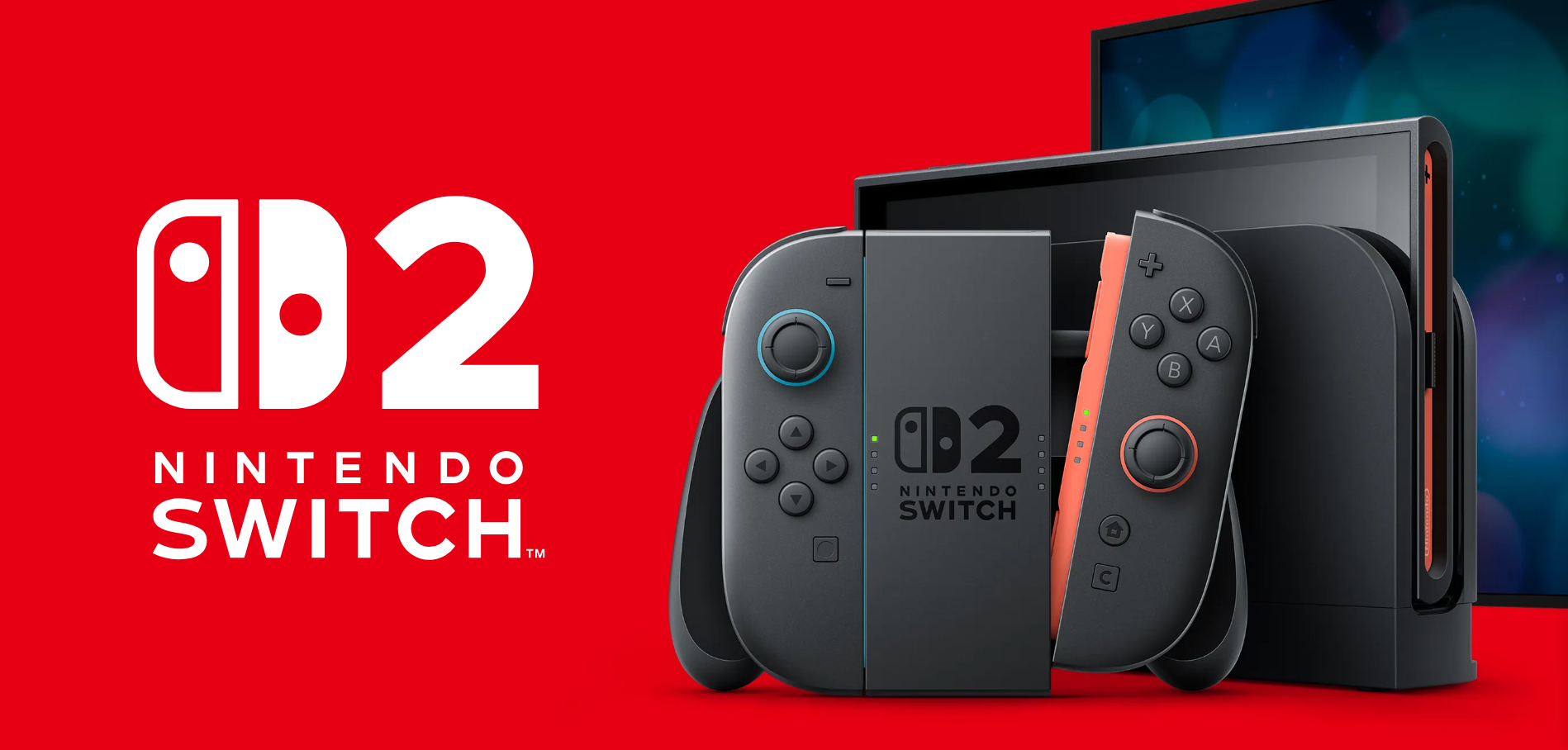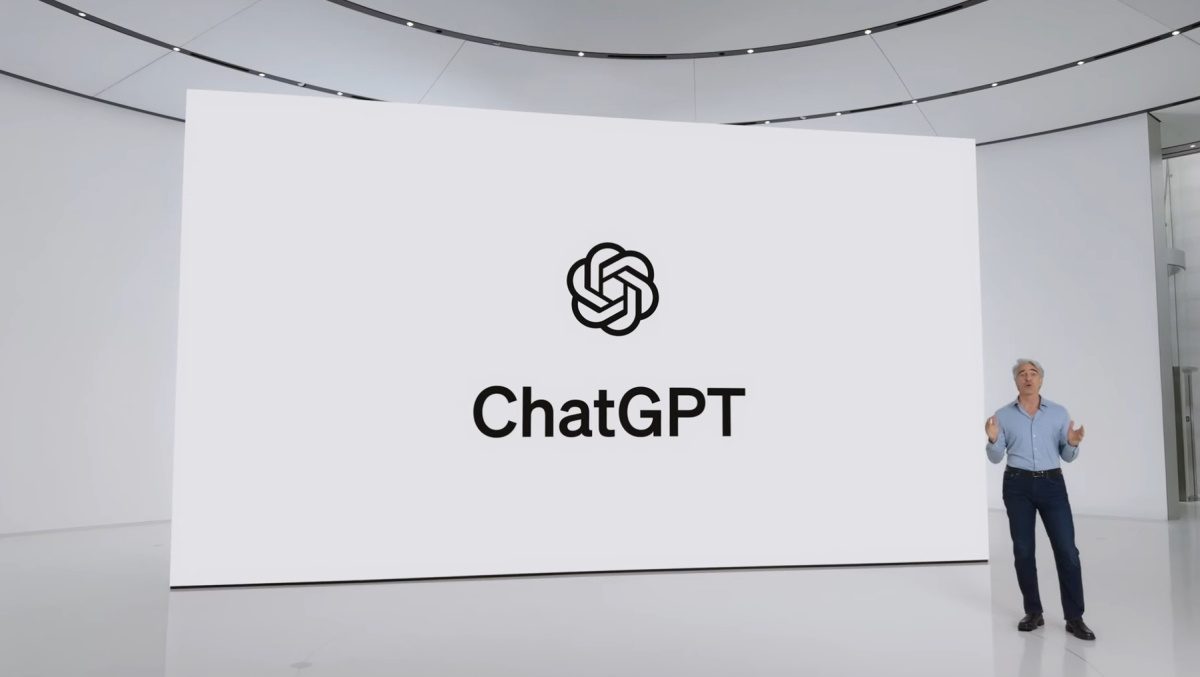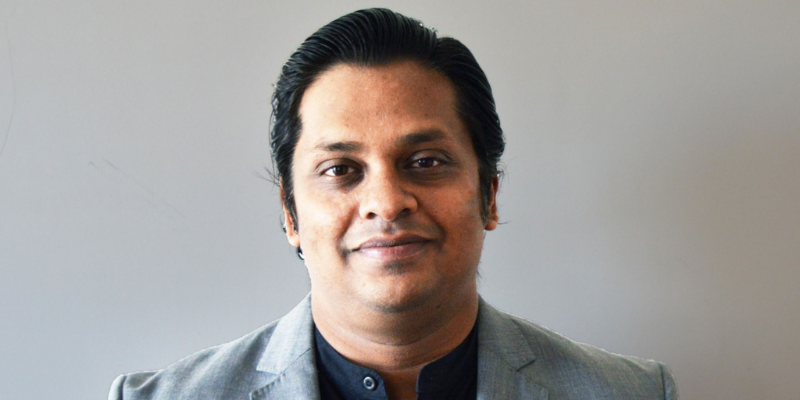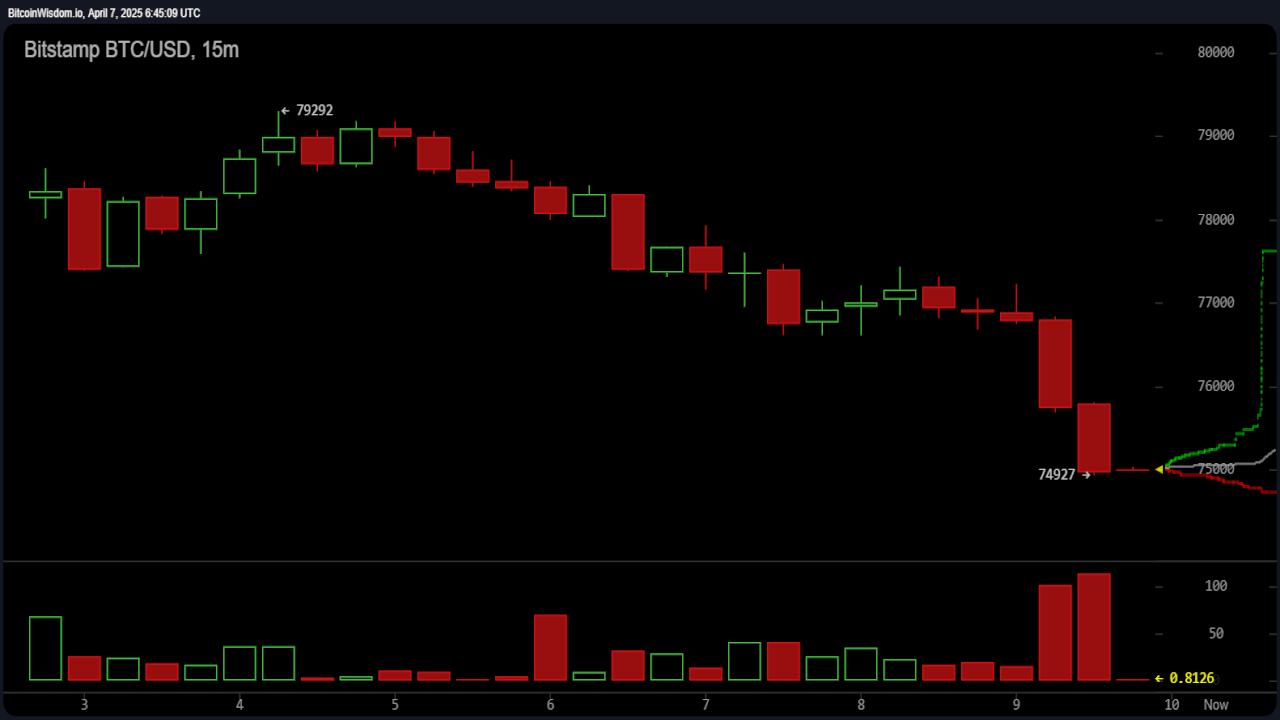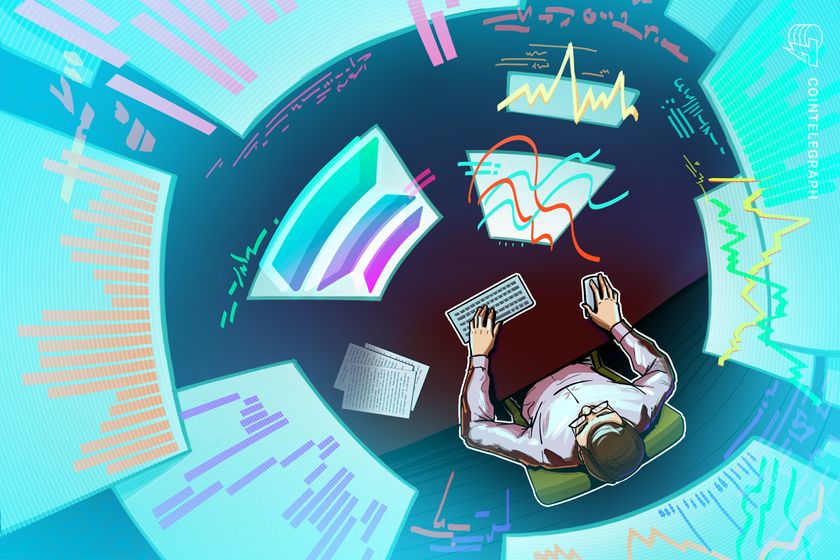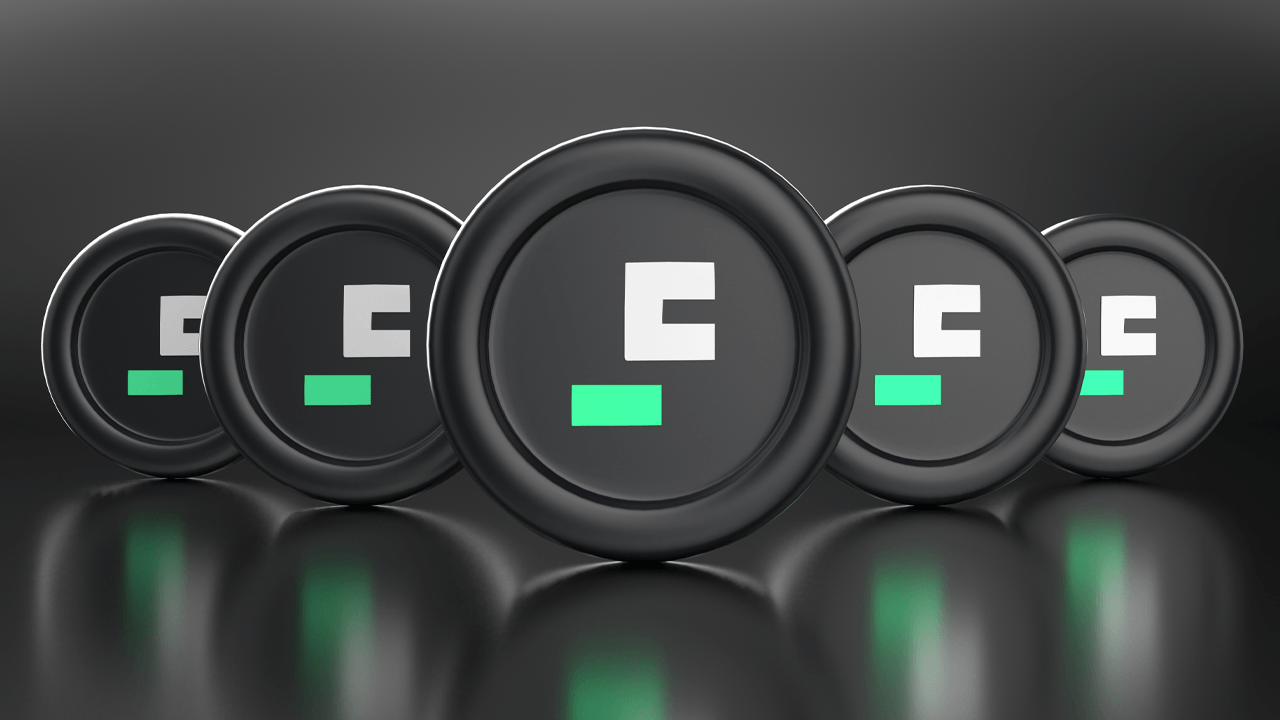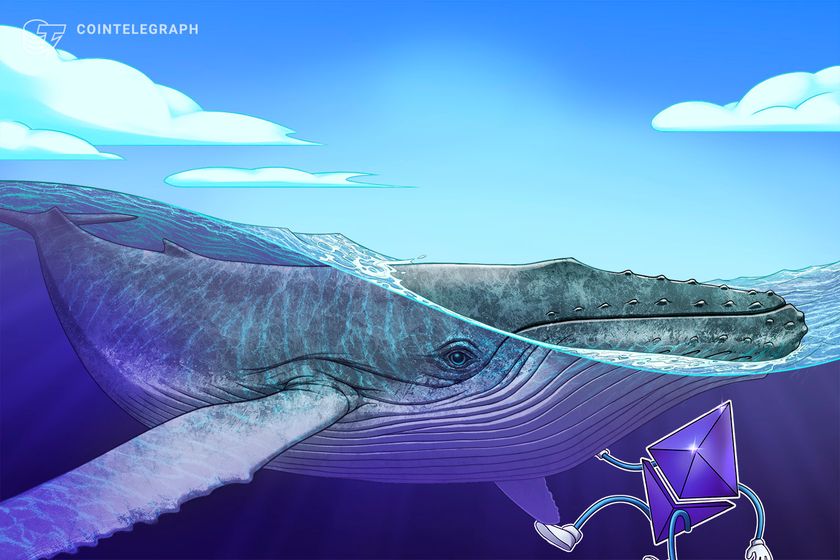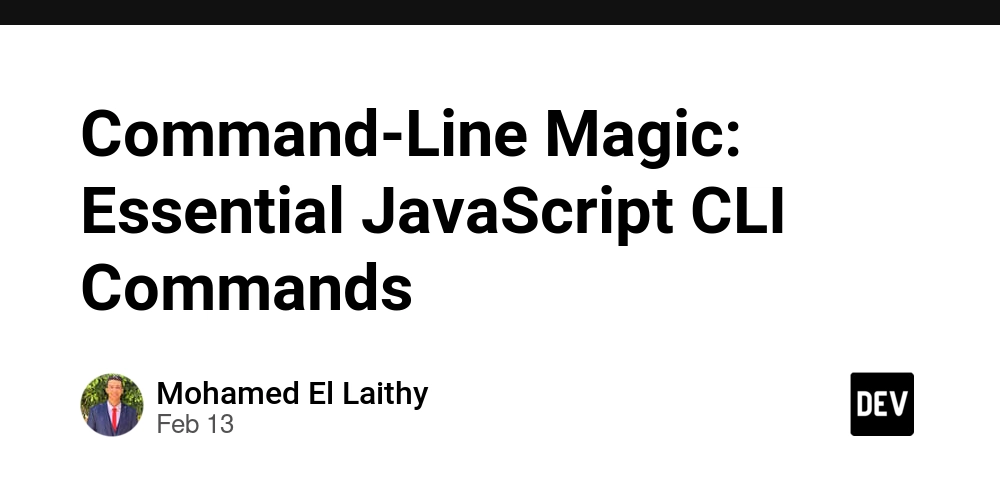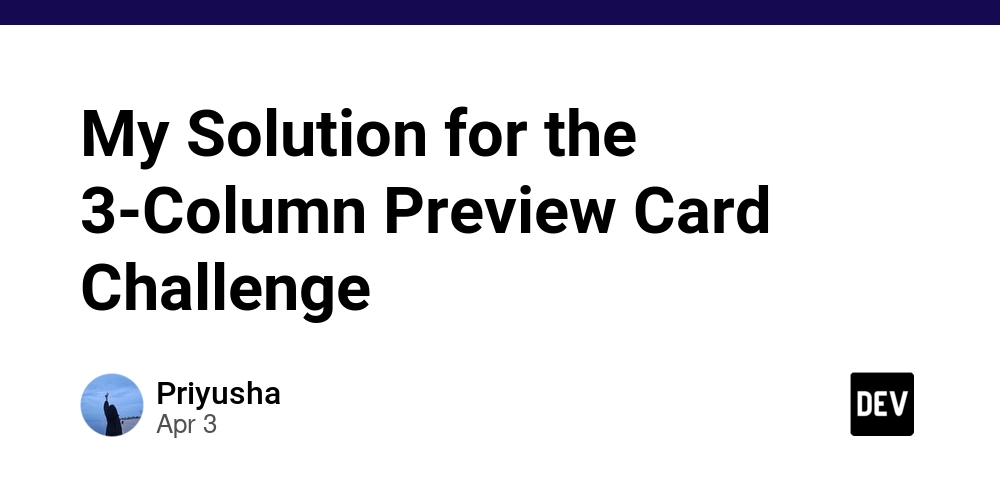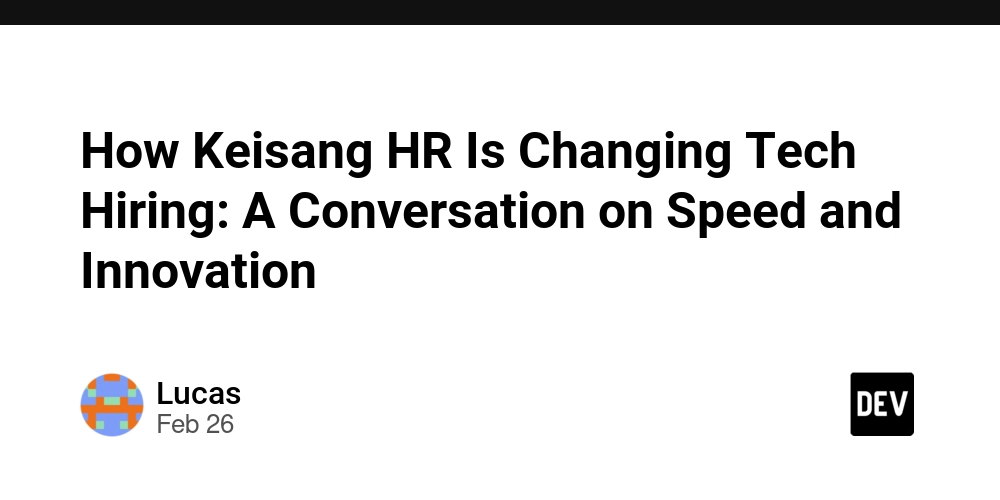My 30-Day Social Media Detox: A Software Engineer's Mindfulness Experiment
As a software engineer, I spend my days immersed in the digital world. The irony isn't lost on me: I build technology while becoming increasingly aware of its effects on my mental state. Recently, I've noticed something concerning—my ability to sustain attention has been deteriorating, and I suspect the culprit may be my social media habits. So I've decided to run an experiment on myself. For 30 days, I'm cutting out nearly all social media platforms (keeping only LinkedIn for professional purposes) and committing to daily meditation. The Hypothesis: Short-Form Content is Shrinking My Attention Span My hypothesis is straightforward: Extensive use of short-form social media (TikTok, Instagram Reels, etc.) is reducing my mindfulness and ability to focus deeply. As developers, we need sustained concentration to solve complex problems. The context switching and dopamine hits from social platforms seem fundamentally at odds with the mental state needed for quality code production. Why This Matters for Developers Let's be honest—our profession requires a level of mental clarity that's becoming increasingly rare in our distraction-filled world. We've all had those days: You sit down to tackle a complex algorithm Your phone buzzes with a notification 30 minutes later, you're still scrolling through an infinite feed Getting back into flow state takes another 15-20 minutes Productivity plummets The research backs this up. Studies have shown that even brief interruptions can significantly impact our ability to perform complex cognitive tasks. As Cal Newport argues in "Deep Work," the ability to focus without distraction is becoming both increasingly valuable and increasingly rare. My Experimental Design Being a developer, I've approached this systematically. Here's my experimental setup: Independent Variable Social media use (eliminated except LinkedIn) Dependent Variable Mindfulness (measured using standardized scales and qualitative observations) Control Variables Meditation routine (keeping consistent) Sleep patterns Diet and exercise Work stress levels (as much as possible) Methodology and Data Collection Pre-Experiment (Baseline) Completed the Mindful Attention Awareness Scale (MAAS) to establish my baseline mindfulness score: [Private] Recorded my average daily social media usage via screen-time reports: [Private] Set up app blockers on my devices Created a structured journaling template to capture daily observations During Experiment (30 Days) I'll be tracking: Daily meditation completion (10 minutes, same time each day) Any social media "slip-ups" (we're all human!) Qualitative factors: mood, focus levels, and social media cravings Weekly screen-time reports to ensure compliance Work productivity metrics (e.g., GitHub commits, tasks completed) Any notable changes in sleep quality or stress levels Post-Experiment Analysis Repeat the MAAS assessment to quantify changes Compare pre/post productivity metrics Analyze journal entries for qualitative themes Determine if my hypothesis was supported Tech Stack for My Experiment Because what's a developer blog without mentioning tools? Here's what I'm using to manage this experiment: Focus App: SelfControl for blocking social media sites and apps Meditation Tracking: Calm for guided sessions and streak tracking Data Collection: A simple journaling on Notebook Expected Challenges I'm not naive about the difficulties ahead: Habit Withdrawal: Social media platforms are designed to be addictive. I expect the first week to be particularly difficult. FOMO: Missing out on trending discussions in tech communities. Communication Shifts: Needing to tell friends and family to reach me through direct channels. Work Notifications: Many development teams use social platforms for communication. Why I'm Sharing This Journey I'm documenting this experiment publicly for accountability and to contribute to an important conversation in our community. As builders of technology, we have a unique perspective on both its benefits and costs. Also, I'm curious—how many of you have experimented with digital detoxes? Did you notice improvements in your coding performance or problem-solving abilities? Follow Along I'll be updating this series weekly with observations, challenges, and preliminary findings. The final post will include a comprehensive analysis of my results and reflections on what this might mean for developers who want to cultivate deeper focus. Week 0: Preparation Today marks the official start of my experiment. I've: Set up all my tracking mechanisms Taken baseline measurements Informed colleagues I'll be less accessible on certain platforms Prepared alternative communication channels Mentally committed to the 30-day journey Initial thoughts: I'm already feeling an
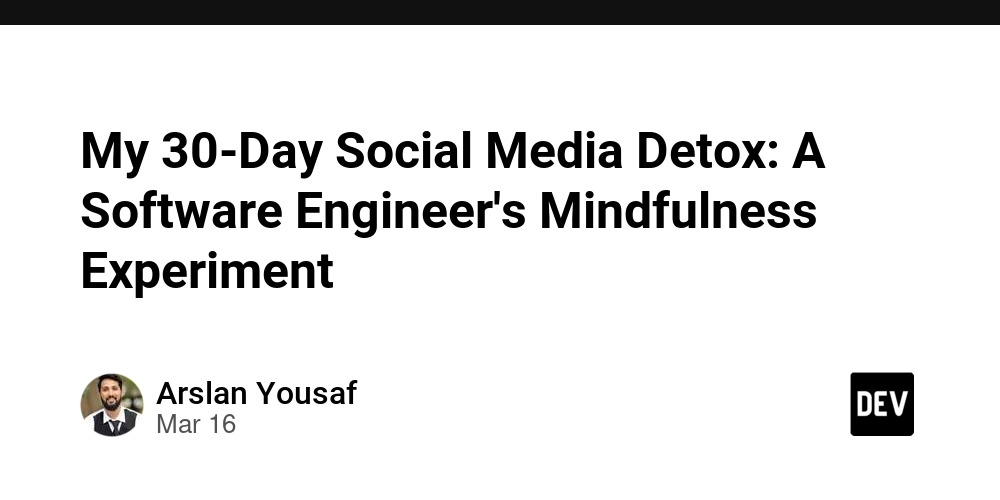
As a software engineer, I spend my days immersed in the digital world. The irony isn't lost on me: I build technology while becoming increasingly aware of its effects on my mental state. Recently, I've noticed something concerning—my ability to sustain attention has been deteriorating, and I suspect the culprit may be my social media habits.
So I've decided to run an experiment on myself. For 30 days, I'm cutting out nearly all social media platforms (keeping only LinkedIn for professional purposes) and committing to daily meditation.
The Hypothesis: Short-Form Content is Shrinking My Attention Span
My hypothesis is straightforward: Extensive use of short-form social media (TikTok, Instagram Reels, etc.) is reducing my mindfulness and ability to focus deeply.
As developers, we need sustained concentration to solve complex problems. The context switching and dopamine hits from social platforms seem fundamentally at odds with the mental state needed for quality code production.
Why This Matters for Developers
Let's be honest—our profession requires a level of mental clarity that's becoming increasingly rare in our distraction-filled world. We've all had those days:
- You sit down to tackle a complex algorithm
- Your phone buzzes with a notification
- 30 minutes later, you're still scrolling through an infinite feed
- Getting back into flow state takes another 15-20 minutes
- Productivity plummets
The research backs this up. Studies have shown that even brief interruptions can significantly impact our ability to perform complex cognitive tasks. As Cal Newport argues in "Deep Work," the ability to focus without distraction is becoming both increasingly valuable and increasingly rare.
My Experimental Design
Being a developer, I've approached this systematically. Here's my experimental setup:
Independent Variable
- Social media use (eliminated except LinkedIn)
Dependent Variable
- Mindfulness (measured using standardized scales and qualitative observations)
Control Variables
- Meditation routine (keeping consistent)
- Sleep patterns
- Diet and exercise
- Work stress levels (as much as possible)
Methodology and Data Collection
Pre-Experiment (Baseline)
- Completed the Mindful Attention Awareness Scale (MAAS) to establish my baseline mindfulness score: [Private]
- Recorded my average daily social media usage via screen-time reports: [Private]
- Set up app blockers on my devices
- Created a structured journaling template to capture daily observations
During Experiment (30 Days)
I'll be tracking:
- Daily meditation completion (10 minutes, same time each day)
- Any social media "slip-ups" (we're all human!)
- Qualitative factors: mood, focus levels, and social media cravings
- Weekly screen-time reports to ensure compliance
- Work productivity metrics (e.g., GitHub commits, tasks completed)
- Any notable changes in sleep quality or stress levels
Post-Experiment Analysis
- Repeat the MAAS assessment to quantify changes
- Compare pre/post productivity metrics
- Analyze journal entries for qualitative themes
- Determine if my hypothesis was supported
Tech Stack for My Experiment
Because what's a developer blog without mentioning tools? Here's what I'm using to manage this experiment:
- Focus App: SelfControl for blocking social media sites and apps
- Meditation Tracking: Calm for guided sessions and streak tracking
- Data Collection: A simple journaling on Notebook
Expected Challenges
I'm not naive about the difficulties ahead:
- Habit Withdrawal: Social media platforms are designed to be addictive. I expect the first week to be particularly difficult.
- FOMO: Missing out on trending discussions in tech communities.
- Communication Shifts: Needing to tell friends and family to reach me through direct channels.
- Work Notifications: Many development teams use social platforms for communication.
Why I'm Sharing This Journey
I'm documenting this experiment publicly for accountability and to contribute to an important conversation in our community. As builders of technology, we have a unique perspective on both its benefits and costs.
Also, I'm curious—how many of you have experimented with digital detoxes? Did you notice improvements in your coding performance or problem-solving abilities?
Follow Along
I'll be updating this series weekly with observations, challenges, and preliminary findings. The final post will include a comprehensive analysis of my results and reflections on what this might mean for developers who want to cultivate deeper focus.
Week 0: Preparation
Today marks the official start of my experiment. I've:
- Set up all my tracking mechanisms
- Taken baseline measurements
- Informed colleagues I'll be less accessible on certain platforms
- Prepared alternative communication channels
- Mentally committed to the 30-day journey
Initial thoughts: I'm already feeling anxious about the lack of access to my usual platforms. This reaction alone tells me something important about my relationship with these tools.
Stay tuned for my Week 1 update, where I'll share initial challenges and observations!
Are you a developer who's experimented with reducing social media use? Did it affect your coding abilities or mental clarity? Share your experiences in the comments!
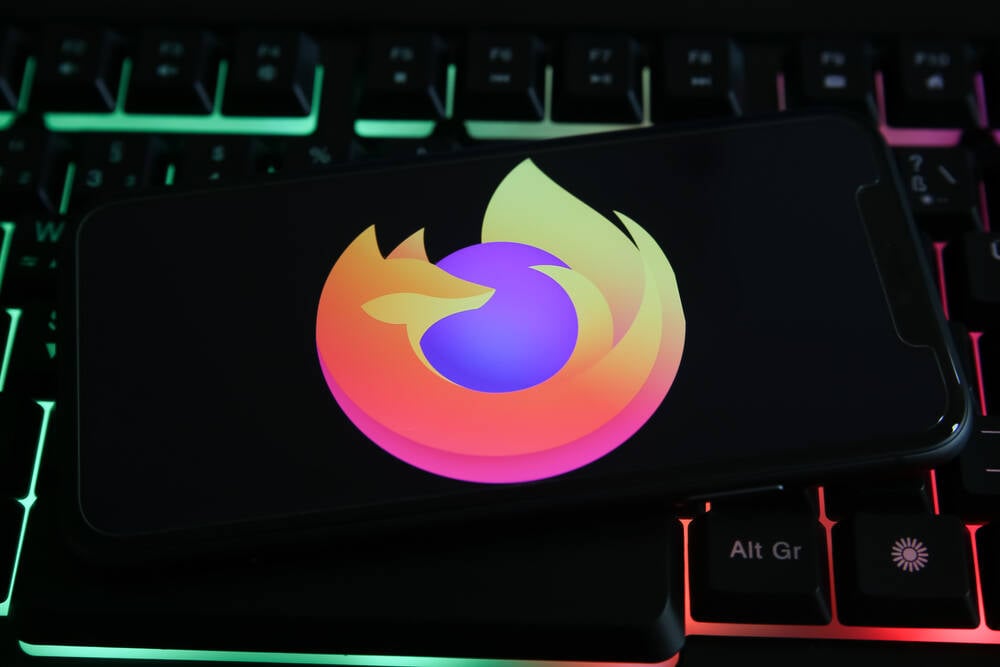








































































































































































![[The AI Show Episode 142]: ChatGPT’s New Image Generator, Studio Ghibli Craze and Backlash, Gemini 2.5, OpenAI Academy, 4o Updates, Vibe Marketing & xAI Acquires X](https://www.marketingaiinstitute.com/hubfs/ep%20142%20cover.png)

















































































































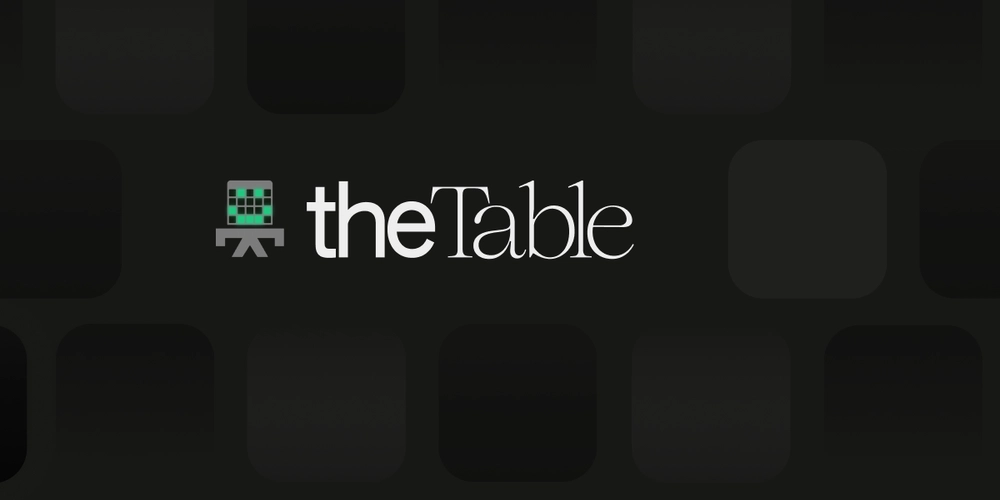
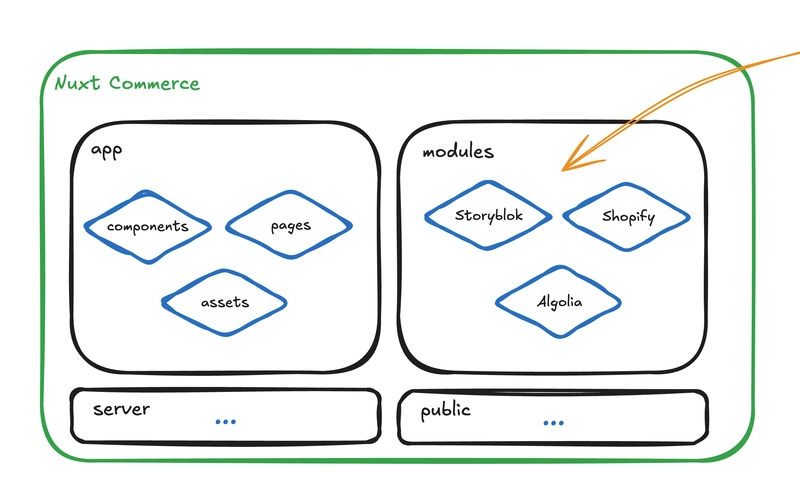
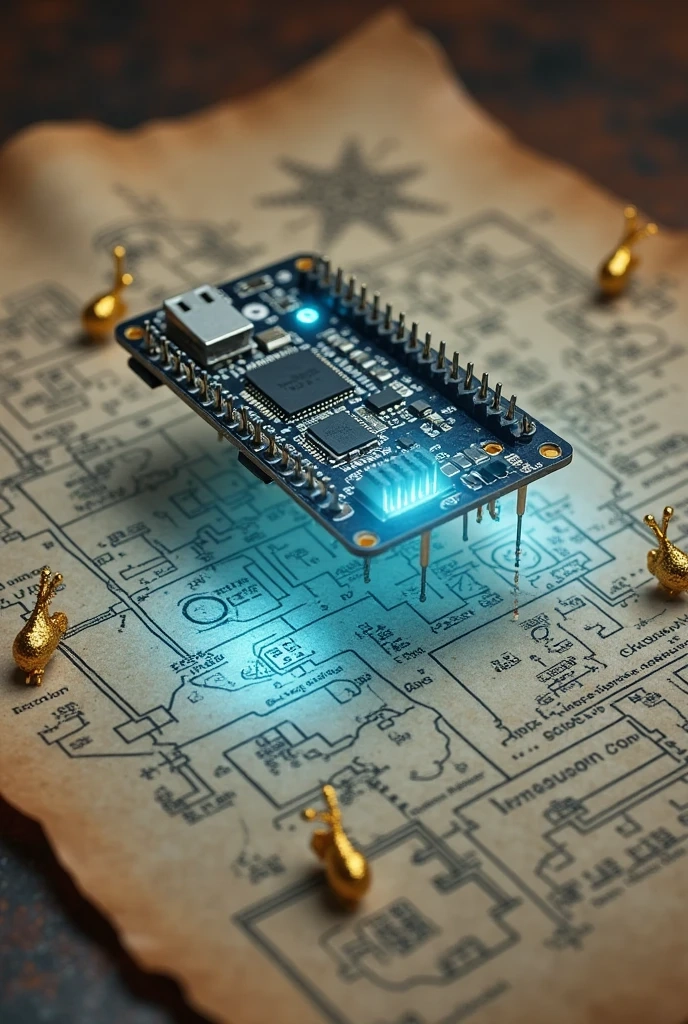
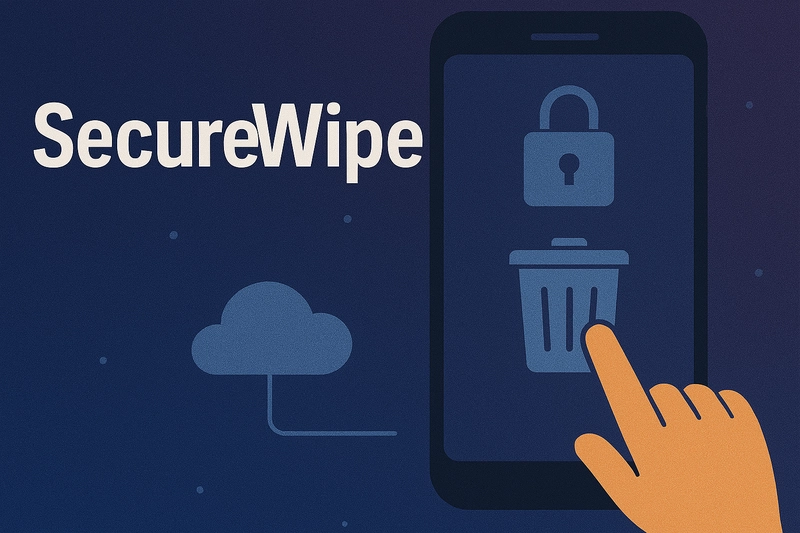










![[DEALS] The Premium Learn to Code Certification Bundle (97% off) & Other Deals Up To 98% Off – Offers End Soon!](https://www.javacodegeeks.com/wp-content/uploads/2012/12/jcg-logo.jpg)

![From drop-out to software architect with Jason Lengstorf [Podcast #167]](https://cdn.hashnode.com/res/hashnode/image/upload/v1743796461357/f3d19cd7-e6f5-4d7c-8bfc-eb974bc8da68.png?#)












































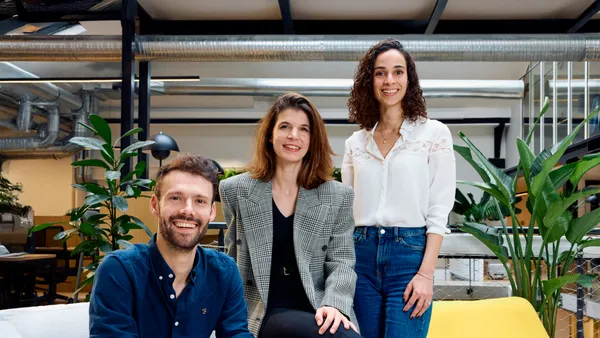



























































.png?#)























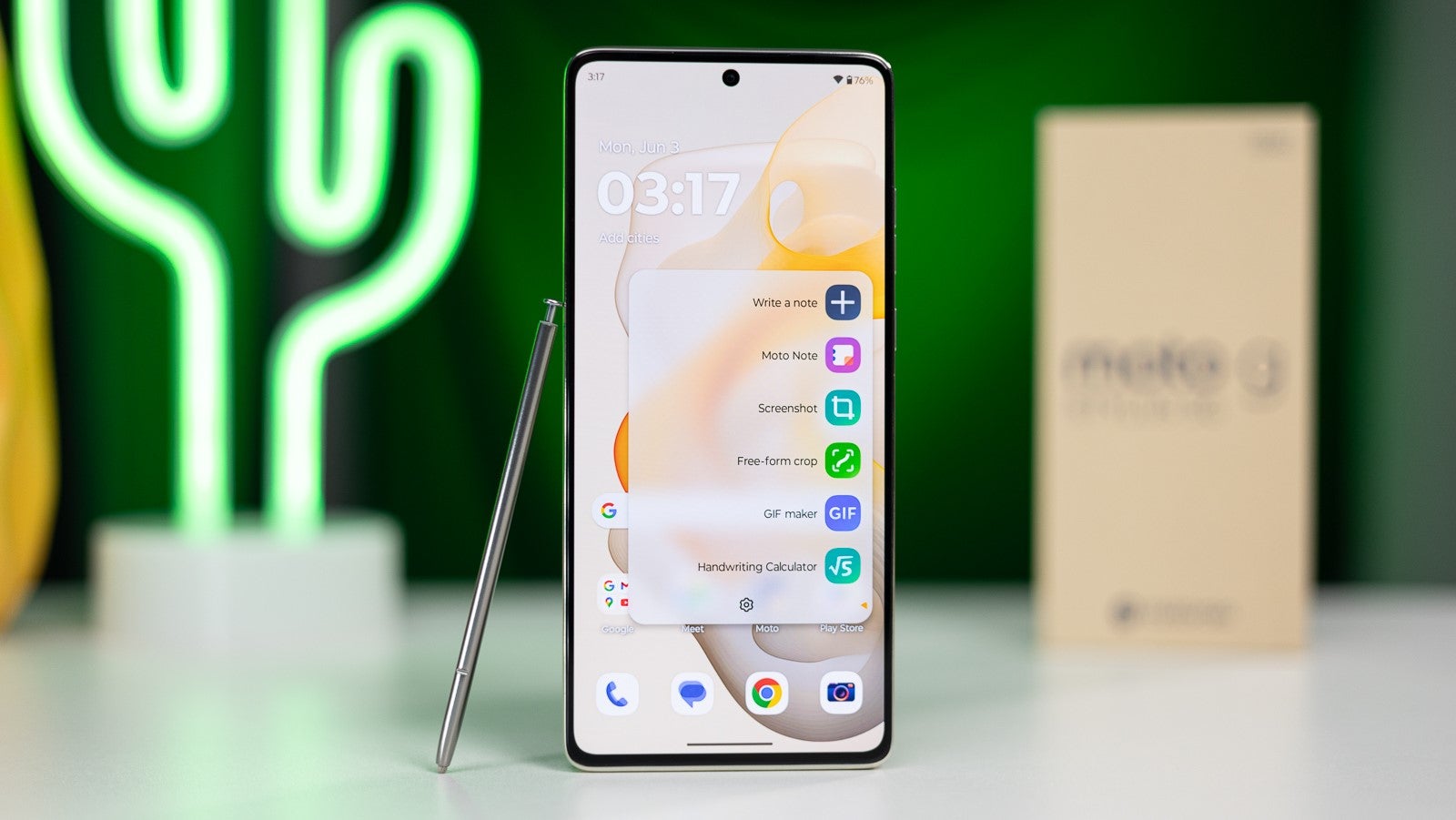










_Christophe_Coat_Alamy.jpg?#)



.webp?#)















































































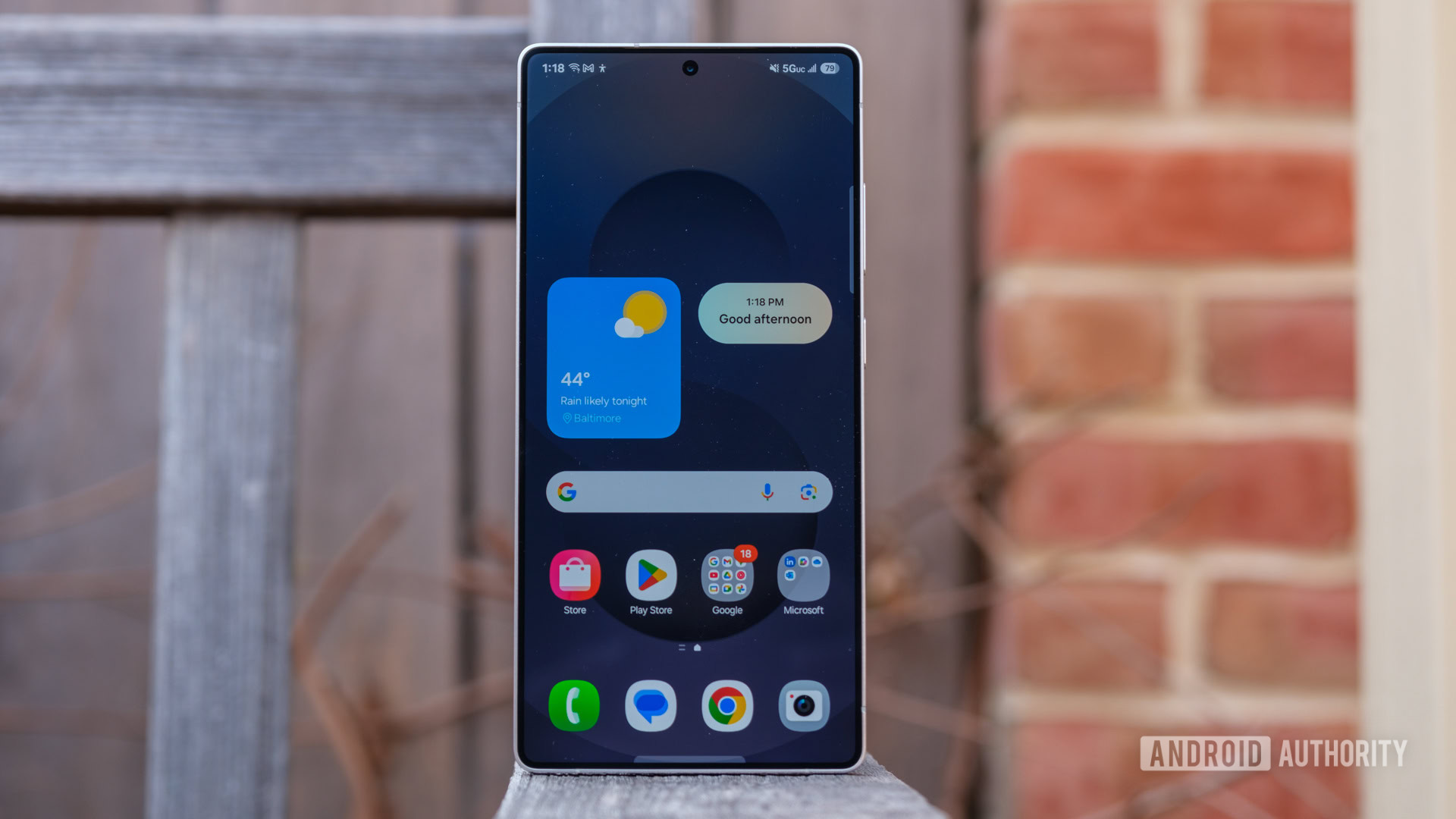
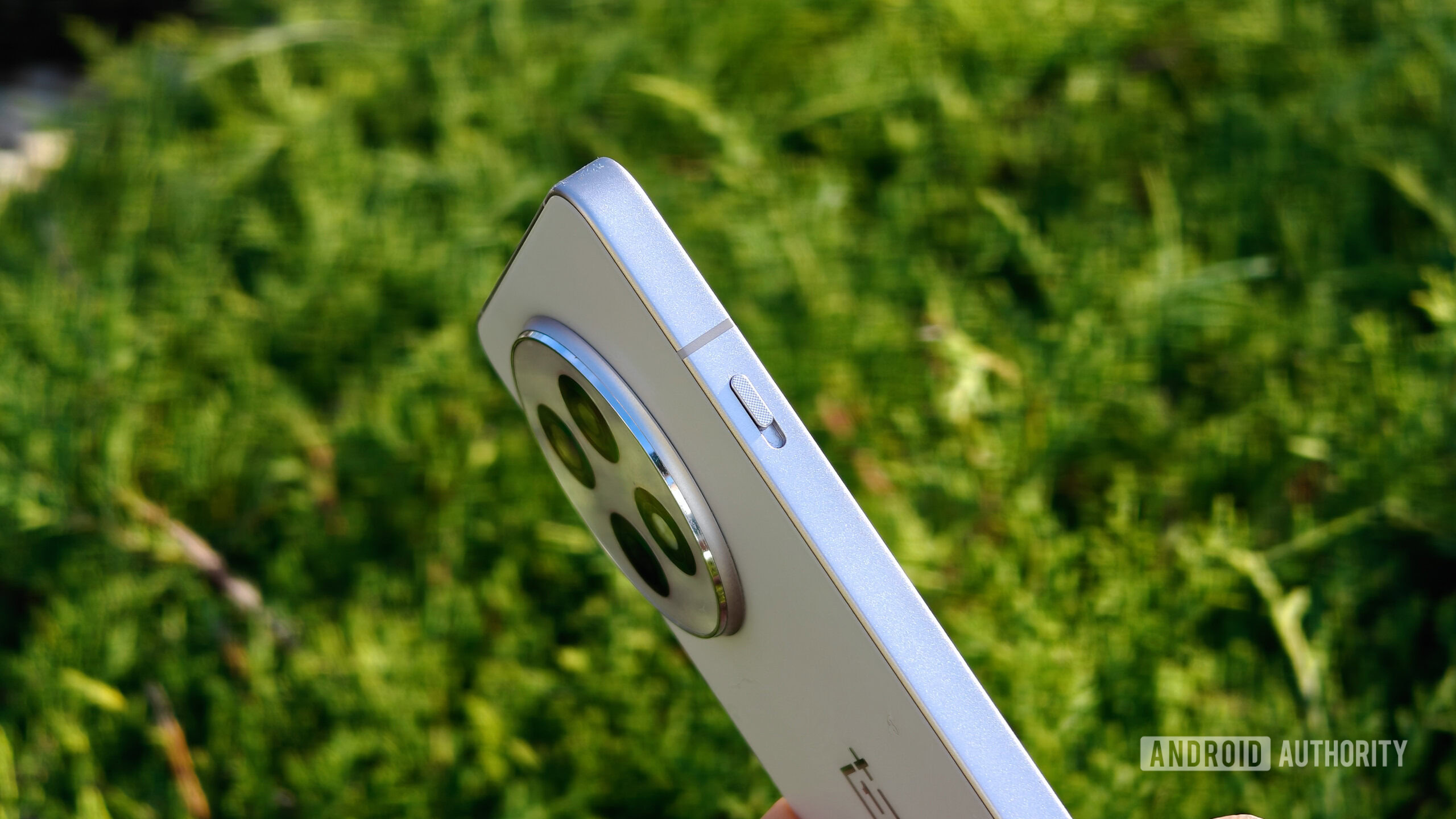
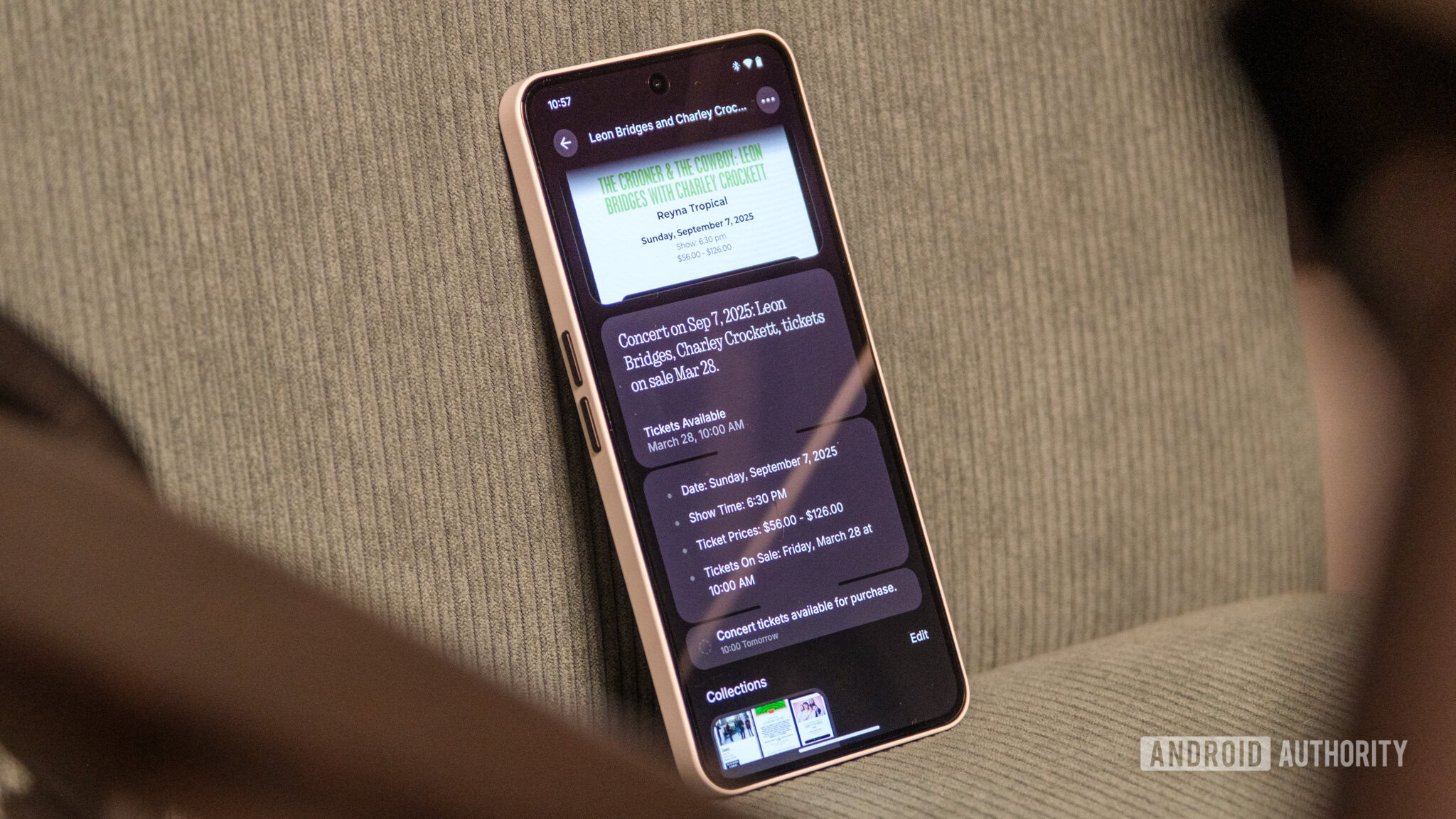
















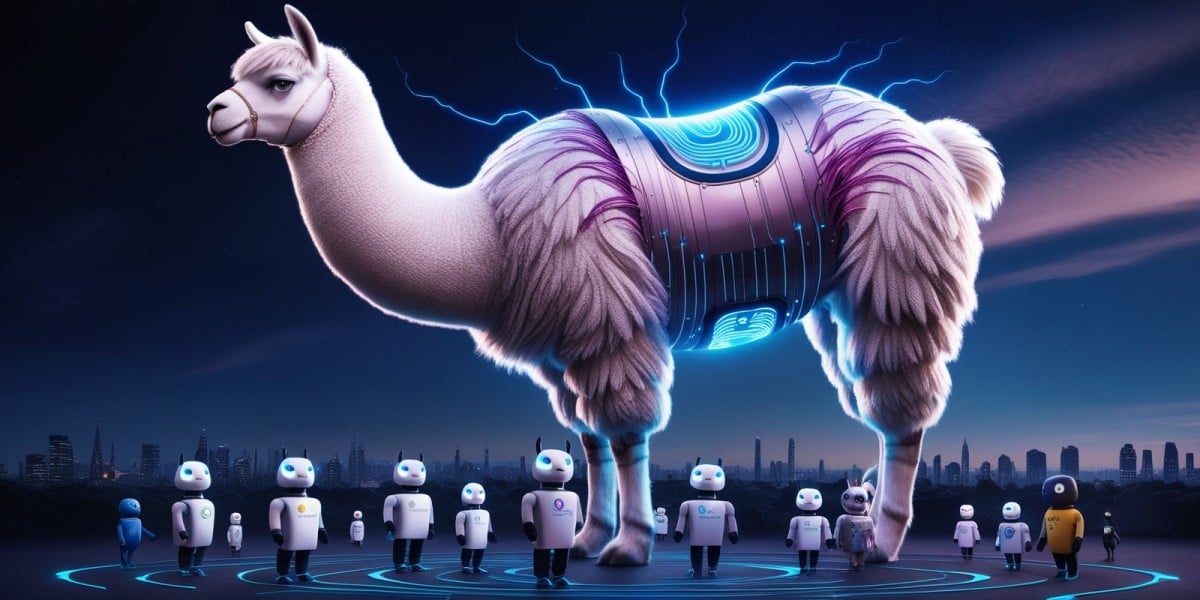



![Apple Considers Delaying Smart Home Hub Until 2026 [Gurman]](https://www.iclarified.com/images/news/96946/96946/96946-640.jpg)
![iPhone 17 Pro Won't Feature Two-Toned Back [Gurman]](https://www.iclarified.com/images/news/96944/96944/96944-640.jpg)
![Tariffs Threaten Apple's $999 iPhone Price Point in the U.S. [Gurman]](https://www.iclarified.com/images/news/96943/96943/96943-640.jpg)














